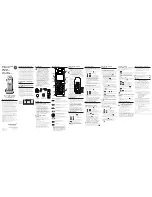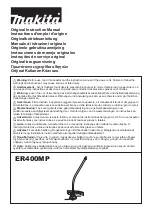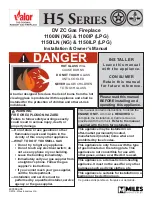
2
KODAK VISION Premier Color Print Film / 2393
™
•
H-1-2393t
Processed prints made on this film will show less than
10-percent image dye loss, even after several decades of
storage at room temperature and 50-percent relative
humidity.
COLOR BALANCE
Color print film is balanced to be printed from a color
negative, duplicate negative, or internegative, using either
an additive or subtractive printer. Black-and-white (silver
image) negatives can be printed to yield a fairly neutral
image, although slight coloration may be seen in
highlights or shadows.
Overall filtration should include a UV-absorbing filter,
such as a KODAK WRATTEN Gelatin Filter No. 2B.
FILM STRUCTURE
KODAK VISION Premier Color Print Film / 2393 is
coated on an 120 micrometre (0.0047-inch) ESTAR Base
featuring a proprietary electrically conductive anti-static
layer, a polymeric scratch-resistant backing layer, and a
process-surviving backside lubricant. Unlike rem-jet, the
anti-static layer remains with the film after processing,
eliminating the electrostatic attraction of dirt particles to
the processed print, even at very low relative humidity. A
very thin polymeric backing layer coated on top of the
anti-static layer provides superior resistance to scratches,
cinch marks, and abrasion of both raw stock and processed
film. The backing layer also contains process-surviving
lubricant and matte to optimize winding and transport
characteristics.
An antihalation layer containing proprietary solid
particle dyes is coated under the normal emulsion. These
dyes offer superior protection against exposure by light
reflected back from the support surfaces, minimizing color
fringing in critical scenes like white titles and night scenes
with automobile headlights. The antihalation layer also
provides improved resistance to safelight edgefog, since it
is coated between the support and the emulsion layers, and
absorbs any support light-piping from the edge of the roll.
The imaging layers are coated on top of the antihalation
layer and they contain new patented emulsion and coupler
technology. The bottom layer is sensitive to blue light, and
produces the yellow dye image. An interlayer controls
diffusion of developer and development by-products. The
next layer is sensitized to red light, and yields the cyan dye
image. Another interlayer is coated on top of it. The top
image-forming layer is sensitized to green light, and
produces magenta dye. The very thin topmost layer (SOC)
provides protection from scratches. Process-surviving
lubricant and matte are used in the SOC to optimize
winding and transport characteristics. The emulsion layers
also contain absorber dyes to precisely control film speed
and reduce intragrain light scatter, increasing sharpness
and further reducing halation. These soluble absorber
* Available from FPC, 6677 Santa Monica Boulevard,
Hollywood, California 90038, 213-468-5774.
dyes, which give the raw stock emulsion its familiar
purple-blue color, are washed out during processing.
IDENTIFICATION
KODAK VISION Premier Color Print Film / 2393 raw
stock has the typical blue-purple emulsion color of print
film. Slight batch-to-batch variations in raw stock color are
normal. The back side of the raw stock has no rem-jet,
appears dark blue to slate-gray, and has a slight
iridescence.
This film has slightly less surface gloss than processed
2386 / E / 3386 / E Film. When viewed by reflected light,
the back side exhibits a slight iridescence, with subtle
color bands due to the dichroic nature of the very thin
back-side coatings.
After processing, “2393 KODAK” is visible along the
length of the film, along with strip number and date codes.
This film is available on ESTAR base only. Most
35 mm applications use KS-1870 (ISO type “P”) print
perforations.
DARKROOM RECOMMENDATIONS
You can use sodium-vapor lamps with a KODAK No. 8
Safelight Filter / dark yellow in safelights providing
general darkroom illumination. The filtered sodium-vapor
lamp provides the best visual efficiency with the least
visual effect on the film.
If you are using a low-wattage tungsten bulb for
task-lighting, filter it with a KODAK 8 Safelight Filter /
dark yellow. You can use amber Light Emitting Diodes
(LEDs) (590 nm peak wavelength) for minimal task or
path lighting; however, do not use them for prolonged or
general darkroom illumination.
4.7 Mil ESTAR Base
Scratch Resistant T-Coat W/Lube
Conductive Anti-Static Layer
U-Coat
U-Coat
Subbing Layer
Anti-Halation Dye Layer
Gel Protective Coat (SOC)
Green-Sensitive Emulsion
Clear Gelatin Interlayer
Red-Sensitive Emulsion
Clear Gelatin Interlayer
Blue-Sensitive Emulsion
Safety Film Base
EXPOSING LIGHT
This drawing illustrates only the relative layer arrangement of the
film and is not drawn to scale.
F002_0698AC
























